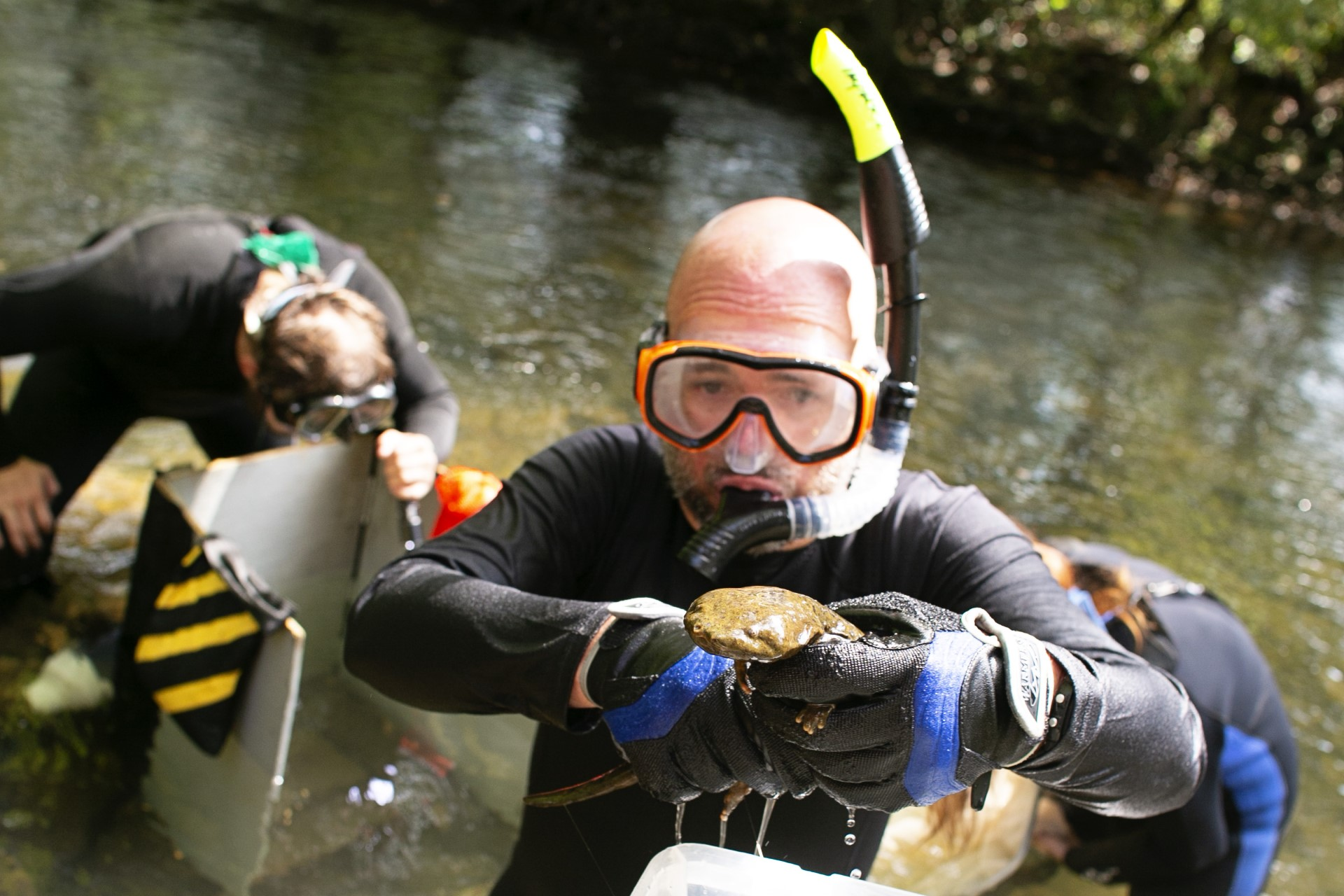Research

CNRE student researchers are making an impact

Both graduate and undergraduate students in the College of Natural Resources and Environment are contributing to and advancing knowledge in their fields by collaborating with faculty members on ongoing research projects or developing and implementing their own independent studies.
Along the way, students are getting valuable hands-on experience in the lab or in the field, as well as the chance to delve deeply into topics that interest them. They’re also learning and practicing the skills of scientific inquiry that can help them land a job or continue their studies in graduate school.
Need help navigating the grant process?

Johanna Cricenti, the CNRE Grants Coordinator is here to support faculty with identifying funding opportunities, developing proposals, and securing research funding. Reach out to Johanna at johanna5@vt.edu or 540-231-4078 today to get started.
Whether you're a new investigator or preparing a complex proposal, Johanna offers personalized, pre-award assistance to help you succeed.
Find funding to get a research project off the ground
If you’ve got a great idea for a research project, the next step may be to investigate funding sources. Whether you are a faculty member investigating seed funding or substantive federal grant opportunities, a graduate student seeking funding to support advanced degree work, or an undergrad looking to launch your first research project, resources are available.
Brian Strahm’s research considers forest productivity, sustainability, and environmental quality, with a focus on the interactions of minerals, organic matter, plants, and microbes in forest and soil ecosystems.
Strahm has received research funding from the National Science Foundation, and he was named a fellow of the Soil Science Society of America for his contributions to the research of forest soil dynamics and their impacts on carbon sequestration.

CNRE faculty build strong partnerships through research centers
Both the College of Natural Resources and Environment and Virginia Tech are home to a variety of centers and institutes that serve as productive mediums for establishing research relationships and germinating impactful ideas. Through these collaborative ventures and venues, CNRE faculty are tackling regional and global challenges in sustainability, geospatial technology, conservation, packaging, coastal studies, water, and more.

Glycomaterials are produced by every living organism. They contain chains of sugars, called glycans, that are one of the four building blocks of life and have critical roles in health and disease.
Maren Roman is playing a key role in efforts to accelerate complex glycomaterials research in the U.S. She’s the director of GlycoMIP, a Materials Innovation Platform funded by a $23 million grant from the National Science Foundation and designed to address nationwide bottlenecks in glycomaterials synthesis, computer modeling, material characterization, and knowledge sharing.


